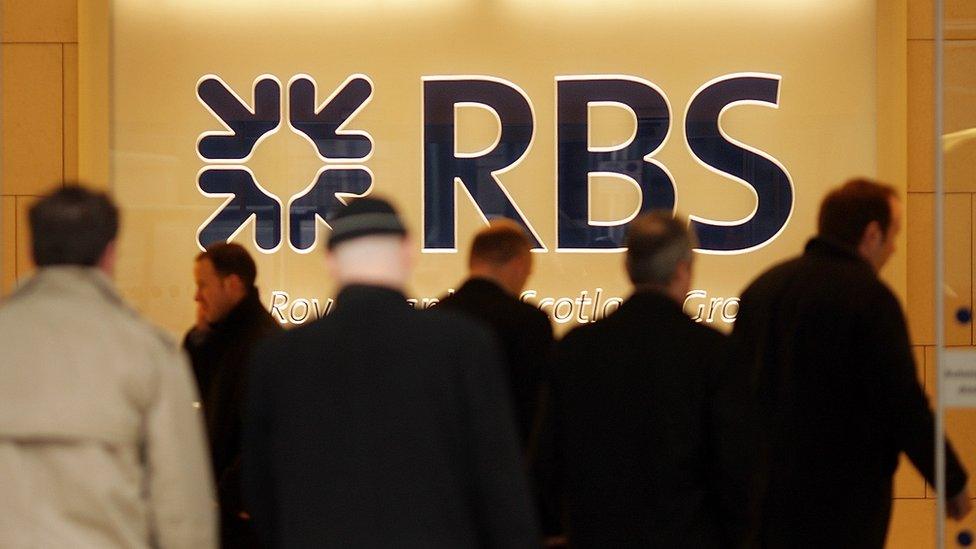The crisis: 10 years in three charts
- Published

The collapse of US investment bank Lehman Brothers saw workers take home their careers in boxes.
Then there was the first run on a UK lender in 140 years, and the massive bailout of a British bank that had become the biggest in the world.
It all started 10 years ago when a French bank admitted it didn't know what its investments in US property were worth - if anything.
That BNP Paribas press release, external became a panic that turned into paranoia as trust between financial institutions evaporated.
On 9 August 2007 we felt the first tremor of a full-blown financial earthquake, whose aftershocks we are still dealing with today - nationally, locally and personally.
Public finances
The crisis ripped a huge hole in the nation's finances as a steep economic downturn caused a sharp fall in government tax receipts. By 2010, the government was having to borrow £1 in every £4 it spent.
Although the amount the government is borrowing every year is now falling, the total debt pile is still rising and currently stands at a whopping £1.7 trillion. That's nearly 90% of the UK's total national income.
Local government
The financial stress at a national level was soon felt at local level. As the government desperately tried to cut spending, local authorities saw their funding slashed with consequences for the services they provide.
Childcare, social care, museums, roads, libraries and others felt the axe fall in the coalition government's controversial austerity drive. Local government spending has fallen 25% in real terms since the crisis.
Wages
It's not just public services that felt the impact. Personal incomes have stagnated in the 10 years since the crisis.
History tells us that real wages and living standards should rise. In fact, for every £100 taken home 10 years ago, workers are now taking home £97.80 after allowing for inflation.
That reality had the Bank of England governor, Mark Carney, reaching for the history books as he recently observed that the UK hasn't seen a period of such weak income growth since the 19th Century.
Not all of the income squeeze can be blamed on the crisis. The changing shape of the UK economy - with more jobs created in lower-paying roles - has played its part, but the wages rot really set in after the crisis.
The highest level of government debt since the war, swingeing cuts in public services and falling real incomes. The last ten years have been unique - and not in a good way.
- Published5 August 2017
- Published4 August 2017

- Published5 August 2017
